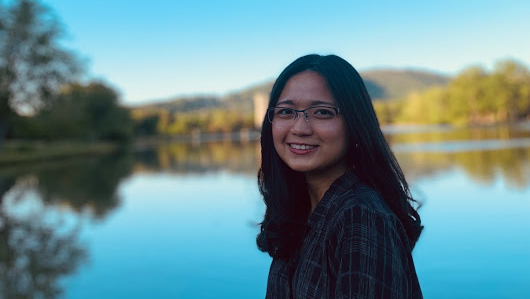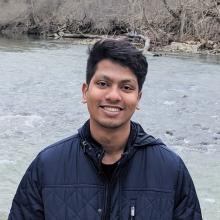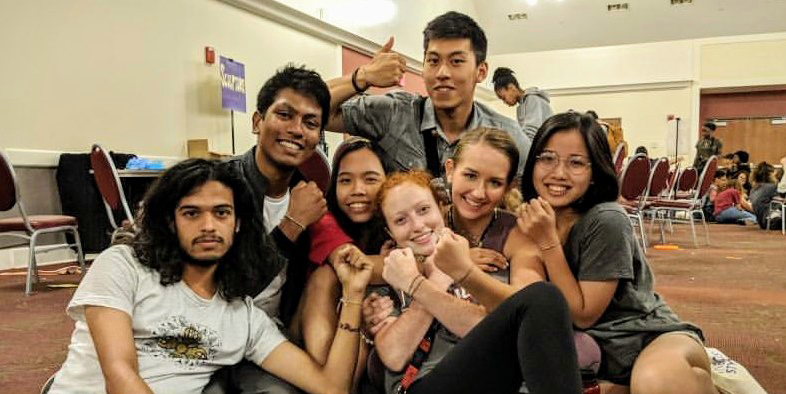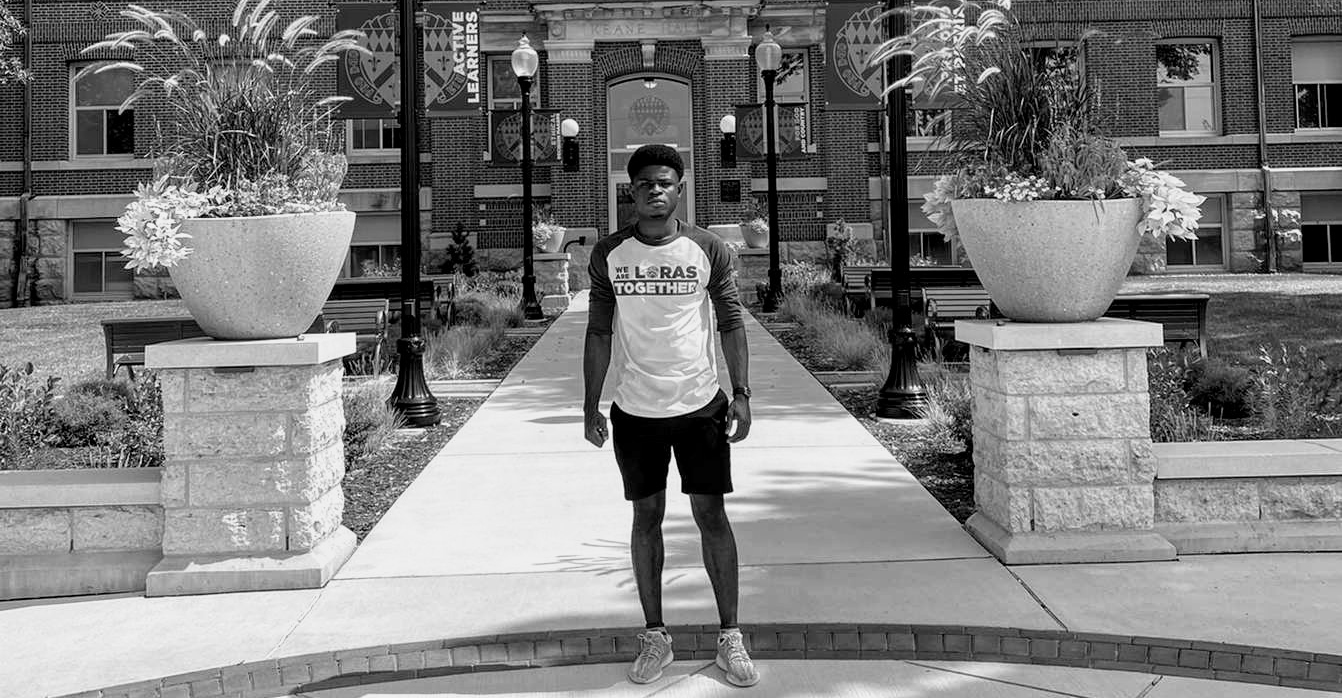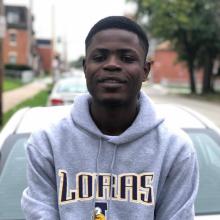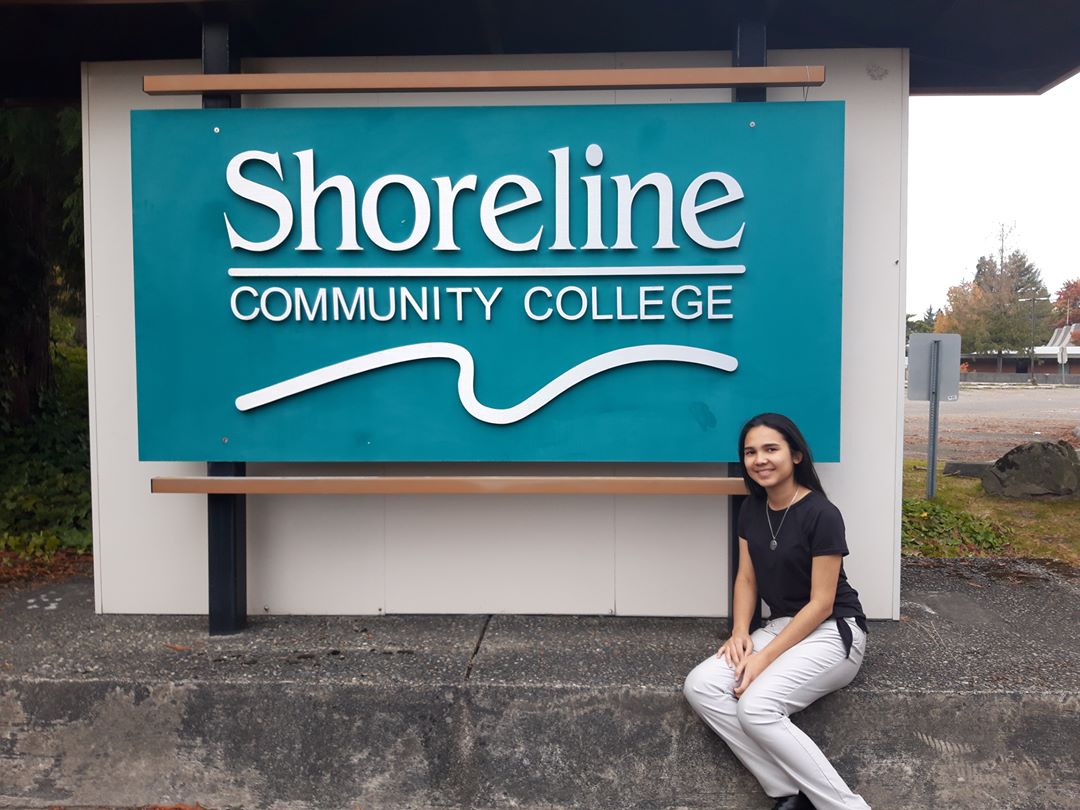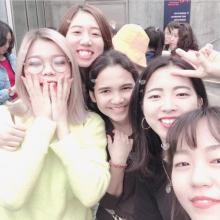From a Hashtag to Campus Quads: Meet the First #YouAreWelcomeHere Scholars
Since #YouAreWelcomeHere first appeared in social media posts in 2016 as a message to international students that they are welcome on U.S. campuses, the campaign has expanded from its grassroots beginnings to a comprehensive scholarship program.
As the movement gained momentum through videos and social media, it was formalized and centralized by Jessica Sandberg, MA, then-director of international admissions at Temple University. To date, more than 300 U.S. institutions have participated in the organized campaign.
In an effort to translate the #YouAreWelcomeHere sentiment into action, institutions introduced a scholarship component in 2018. More than 50 colleges and universities committed to offering the #YouAreWelcomeHere scholarship, which covers at least 50 percent of tuition for selected international undergraduates.
The inaugural class of 33 #YouAreWelcomeHere scholars arrived on campuses across the country last fall. International Educator talked to five of them to learn about their first year in the United States and their experience of living and learning through a pandemic. All agreed that the #YouAreWelcomeHere scholarship was the door that led them to choose their particular institution.
The students also shared stories of the challenges of navigating a new educational system, learning about U.S. culture, and making friends from around the world. As they all start their second year in the United States, they look forward to reconnecting with their campus communities.
Listen to interviews with these students on the International Educator podcast.
Naw Lia Paw
Home country: Myanmar (also referred to as Burma)
U.S. institution: Furman University
Major: Neuroscience
Though Furman University is not the first place where Naw Lia Paw has studied abroad, arriving on campus in Greenville, South Carolina, was the culmination of years of pursuing educational opportunities.
“Because I belong to a minority ethnicity back in Burma, I thought that going to study in Japan would give me more qualifications to get into college in the United States,” she says. Paw spent 3 years during high school in Japan, taking advantage of a higher-quality education than was unavailable in her native Myanmar.
Studying in Japan as a high schooler taught her about handling homesickness, having a roommate, eating different foods, and being a voice for her own culture. “Without going to Japan, I don’t think I could have thrived this much in college,” she says.
Paw plans to go to medical school after she graduates from Furman. She initially thought about specializing in psychology because there is a need for mental health services in Myanmar. “I thought if I could bring a unique specialty back to Burma and share it to people, it will benefit the country,” she says. “When I came to Furman, I realized that psychology was widely taken by a lot of people in [the] premed track. And I don’t like to be ordinary. So, I thought that if I could combine psychology with biology that would actually...make me a better doctor.”
Like the other #YouAreWelcomeHere scholars, Paw was halfway through her second semester at Furman when classes were disrupted by the COVID-19 pandemic. Almost all students left campus, “and being an international student, I couldn’t return home,” she says. “I got to live in...a big apartment by myself. I got to have the kitchen and everything. But everything was isolated. I was by myself 24/7. I started feeling a bit depressed with the campus. Like, the people that you normally see, the buildings, everything closed down, and it was deserted.”
Despite the tough circumstances, Paw remains resilient. As some students started to return to campus in mid-August, she began to reflect on what she wants to get out of the upcoming school year.
“I wrote down a list of how to make my life normal again,” she says. “I started talking to people, going out [for] meals while being socially distanced. And academically, yesterday I wrote down my full schedule with the goals that I want for each class. I stopped thinking of ‘what if’ and ‘I wish’...I had to let go of freshman year. So, I stopped comparing things, and I just started [focusing on] right now, right here.”
She says that Furman has been a welcoming place for her as an international student. “It has allowed me to be who I am,” she says. “I’m sort of a loud personality and also very straightforward of what I want, where I want to be....It has allowed me to go for what I want rather than limit me.”
Rafid Pranto
Home country: Bangladesh
U.S. institution: Miami University
Major: Data science and statistics
Rafid Pranto used the year he took off after high school in Dhaka, Bangladesh, to apply to colleges in the United States. A full-ride #YouAreWelcomeHere scholarship, combined with a strong science, technology, engineering, and math (STEM) program and the opportunity to participate in a university writing program, made Miami University in Oxford, Ohio, the right fit. Traveling to the United States was Pranto’s first time outside of Bangladesh.
Before coming to the United States, he had heard that some international students face microaggressions and discrimination, but “my experience in Miami University and Oxford has been pretty great until now,” he says. “The campus is engaging. There is something to do in the weekends...and I have found [the] right balance between my academics and extracurricular activities here.”
One of the highlights of his experience was getting to know his roommate, who is from Tennessee. “I have met his family many times. I even stayed over at their place in the Thanksgiving break, and I’ve been to his grandparents’ home,” Pranto says. “So the cultural difference never bothered me. We went along pretty well.”
In addition to meeting students from across the United States, he has met people from around the world. “The other thing that helped me is a good number of friends from different countries here—from India, Malaysia, Thailand, Sri Lanka, Nepal, and also obviously American friends,” he says. “The experience has been pretty good.”
He left Ohio in mid-March to stay with his aunt in Connecticut, completing his semester remotely. “Honestly, the transition to online, I didn’t like it,” Pranto says. “I’m a STEM major, and basically my major includes lots of math and stuff. And it’s been really tough to transition to online classes and giving those exams, writing those math notions and equations online.”
He recognizes that both students and faculty struggled with the abrupt switch to online learning, with the change to virtual classes taking place within three days. The fall semester was supposed to begin on campus in mid-August, but classes will remain online with the intention of starting in-person instruction at the end of September. The university is also giving students the option of doing the entire semester remotely or taking a gap year.
One of the things he misses most about Miami is walking around the campus. “For the last two months, I go out once a weekend maybe, but I really miss being outside,” he says. “That is probably the first thing I’m going to do [when I get back to Miami]—and obviously meet my friends. It’s been so long.”
Prosper Arhin Anane
Home country: Ghana
U.S. institution: Loras College
Major: Biochemistry
It was the food and weather that Prosper Arhin Anane struggled with the most during his first year as a biochemistry major at Loras College in Dubuque, Iowa. The change from fall to winter in central Iowa held a major surprise for Anane.
“I remember my first day seeing snow through my windows,” he says. “It was like, ‘Oh, that’s very nice. Everything is white.’...I was on the third floor of one of our halls so I could see the rooftops of most of the buildings around, and it was very nice. And then, I came down and started going to class and oh my God, it wasn’t fun. It was not fun at all. Very slippery...I wouldn’t want to experience that again. But I guess I have to.”
As for the food: “What you guys call soup? Nah, that’s not the type of soup we eat back home,” he says. “It’s very different. Most of the stuff here is either too salty or too sweet. And back home it’s just right in the middle.”
Anane enjoyed all of his classes, but he says that the U.S. style of education is a departure from what he experienced back in Ghana. There, professors give students material to read on their own, and assessment is the final examination. In the United States, students have multiple assignments “and you have to be always doing something,” he says. “It’s very different from the type of education I have back home.”
He enjoys being able to have control over his schedule and the fact that students have more say in the courses they take to graduate.
This summer, Anane did an internship at a local nursing home, which has given him a new perspective on his plan to become a doctor. Prior to his internship, Anane had not considered the human element of a career in the medical field. But interacting with the nursing home residents has shown him the importance of that connection.
“I’ve really enjoyed it,” he says. “My coworkers are very good. [And] the time I spend with these residents [has] just given me this humbleness of taking care of people.”
Maral Atayeva
Home country: Turkmenistan
U.S. institution: Shoreline Community College
Major: Liberal arts and sciences
During International Education Week in 2018, Maral Atayeva learned about the #YouAreWelcomeHere scholarship program from an adviser at EducationUSA in Turkmenistan. “Actually, how I found Shoreline Community College is mostly because of the scholarship,” she says.
Shoreline was the first community college in the United States to offer international students scholarships through the #YouAreWelcomeHere program. “Because it was a community college, it was [a] really rare thing,” Atayeva says. “And I just love my experience here.”
One surprise Atayeva found in her residence hall at Shoreline: the diversity of cultures within the United States. Before the coronavirus hit, she lived in a campus dorm about 20 minutes north of Seattle. “American culture…is a little bit of everything,” she says. “I was living in the dormitory with...girls who were from Hawaii, and although it’s in the United States, they have this really interesting culture.”
“My whole experience of coming to [the] U.S. is more about the differences and variety of opinions. People are willing to accept you and just listen to you,” she says. “And then trying to explain that this is how we do [something] instead of criticizing. That’s what I just love.”
In March, she moved in with a local family when the residence halls were shut down—a change of plans that turned into a silver lining to the pandemic. “They were actually telling that they’ve never met any Muslim student,” she says. “I like that they are asking questions, and I really feel welcome. I’m actually grateful that I moved to the host family. It’s a whole new experience.”
Living with a host family has exposed Atayeva to new experiences, including the great outdoors. “There’s a lot of other hobbies that I started doing that I didn’t do before,” she says. “In Washington, hiking is really popular over here. And I wasn’t doing it before, even when my friends were inviting me. But coming to [my] host family, they invited me once and I started going twice, and I just love hiking a lot.”
Neha Adhikari
Home country: Nepal
U.S. institution: Adelphi University
Major: Computer science
Neha Adhikari had always dreamed of studying in the United States, and when it came to applying to colleges, she cast a wide net. “I applied to 15 schools, I think,” she says. “And I was just going through each school’s scholarship profile, and then at Adelphi I saw the #YouAreWelcomeHere scholarship. So right then and there I applied. That’s how I found out about it.”
Now she’s studying computer science, a subject that has interested her since she was a little girl. “I always wanted to play with computers and play games,” she says. “When I was 13, my dad got a computer and it was the big, bulky one. And I would always want to play games and do stuff, and my dad won’t let me because it’s his work computer. I would hide and use it when he was not around.”
In high school, she learned how to code and develop software. Her friends and family encouraged her to pursue computer science as a career. In Nepal, she was one of the few women studying STEM.
“There are not any girls,” she says. “Even here at Adelphi, I don’t see a lot of girls in STEM. It feels pretty empowering to me. People [might] feel alone being the only girl, but I feel empowered that I’m the only girl.”
“I was kind of homesick for a bit. And everyone, my friends, my professors, they were all willing to talk about it and that was helpful.”
Though her coursework is fulfilling, Adhikari says that she struggled during her first semester at Adelphi. “It’s completely different from how it is back home—it was kind of hard to fit in at first,” she says. “I was running around trying to figure out things, like how to do this, how to sign up for classes, how to drop out of classes, how to add courses and stuff. But after [the] first semester, it was easy.”
She finds staff, students, and faculty on her campus to be extremely helpful. “The people around here are very, very friendly,” she says. “If they feel like you’re struggling with something, they’ll offer to help. They’ll ask you if you’re okay. And I was kind of homesick for a bit. And everyone, my friends, my professors, they were all willing to talk about it and that was helpful.”
When the coronavirus hit in March, she was in New York, one of the first infection hotspots in the United States. “The second semester, it was going on really well and then COVID happened,” she says. “I was just hoping for the spring break to be extended and then everything would go back to normal, but it got worse. And then the lockdown happened, and then everything was terrible. Especially in New York, everything was very bad.”
One of Adhikari’s hobbies is photography, which has given her the chance to explore New York City. “I’m interested in photography, so I go around taking pictures...[of] buildings and architecture. Around New York City there’s a lot of that, so that’s pretty interesting and fun,” she says. “I have gone to the city a few times [since coronavirus] just to see what it is like. When I first came here there were people all around the streets. It was so full of life. Now...there’s nothing. There’s no one around the streets. It’s all empty so that feels kind of weird.”
Like all the #YouAreWelcomeHere scholars, Adhikari is looking forward to starting her second year. Adelphi is offering a hybrid model, she says. “You can either stay home and take classes online or go to school. I have a few classes that I have to attend in person and most of my classes are online,” says Adhikari. “Right now, I’m just looking forward for everything to be normal so that I can get the full-on experience.” •
NAFSA Resources
About International Educator
International Educator is NAFSA’s flagship publication and has been published continually since 1990. As a record of the association and the field of international education, IE includes articles on a variety of topics, trends, and issues facing NAFSA members and their work.
From in-depth features to interviews with thought leaders and columns tailored to NAFSA’s knowledge communities, IE provides must-read context and analysis to those working around the globe to advance international education and exchange.
About NAFSA
NAFSA: Association of International Educators is the world's largest nonprofit association dedicated to international education and exchange. NAFSA serves the needs of more than 10,000 members and international educators worldwide at more than 3,500 institutions, in over 150 countries.
NAFSA membership provides you with unmatched access to best-in-class programs, critical updates, and resources to professionalize your practice. Members gain unrivaled opportunities to partner with experienced international education leaders.


